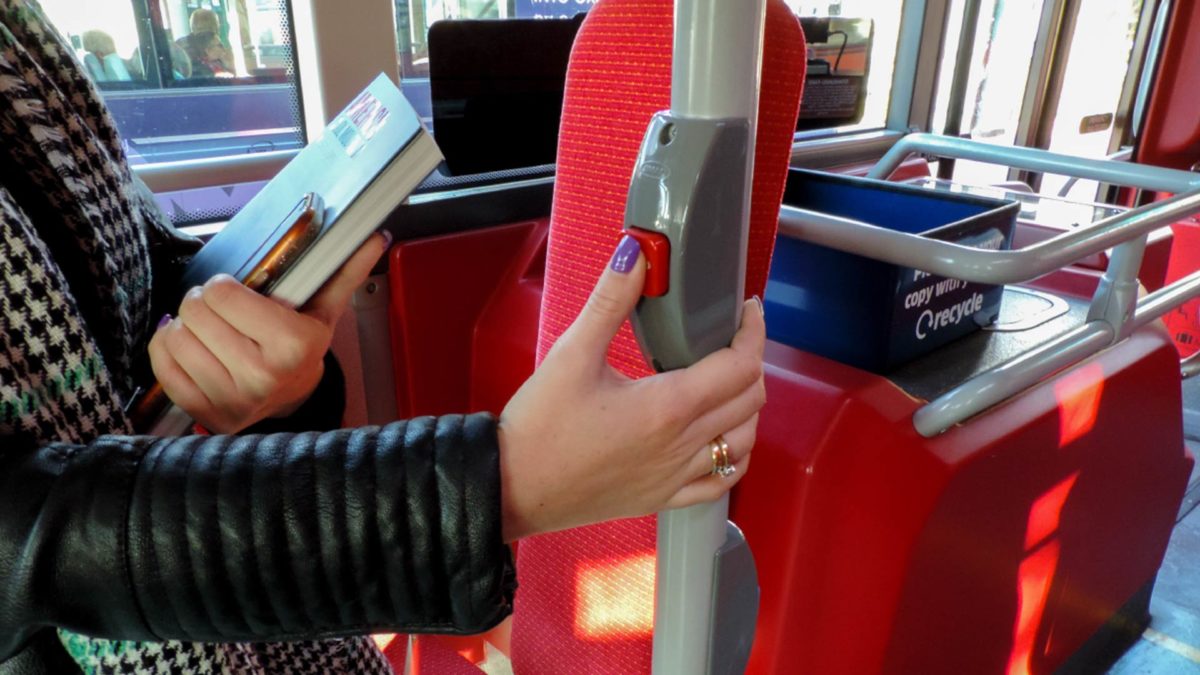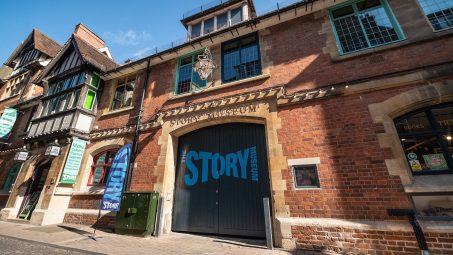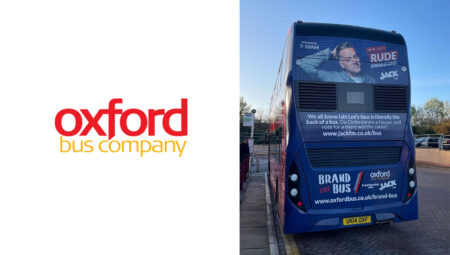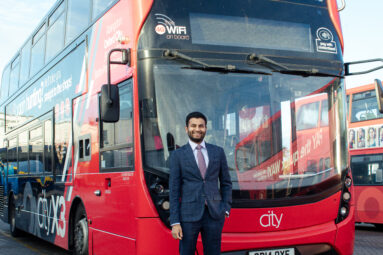
How clean is your transport?
Since the start of the COVID-19 pandemic, we’ve all had to deal with a lot of “complex messages” on what we should and shouldn’t be doing to manage the risk of coming into contact with the Coronavirus.
Back in the first lockdown in the spring, the government gave out a lot of very strong and clear messaging telling us all to “avoid public transport” wherever possible. Given the wider context in which this message was delivered – a country bewildered and fearful about the possible impact of the virus without a full understanding of how it spreads – many people have taken this to heart and still hold a deep-rooted belief today that public transport is hazardous to their health, and to be avoided.
We’ve therefore seen a seismic shift away from public transport during 2020. More than 20 years’ worth of good work to increase the number of people using buses has been undone, as people have shifted back to using their cars more often as a ‘comfort blanket’. Second-hand car market values have boomed as many who didn’t previously own a car decided to buy one. Those who chose not to use their car and use public transport instead to ‘do the right thing’ are no longer doing so. And while it’s true that fewer journeys overall are happening – with many of us continuing to work from home – road traffic levels have returned to more than 90% of pre-pandemic levels, while public transport ridership continues to languish at around half of the levels achieved before the outbreak began.
The big problem is the sustainability of this change – both financially, and for the planet. We already knew before the pandemic that very soon we would all need to use a lot more public transport, not less, if we were to make any meaningful progress on achieving our carbon reduction targets as a society and to reduce the harmful impacts of climate change. A recent report by the Local Government Association “Decarbonising Transport – Getting Carbon Ambition Right” sets out the size of the challenge we collectively have as a society to achieve our carbon reduction targets. The harsh reality is that, if we don’t use our public transport networks, we will lose them at this crucial time that we need to achieve modal shift from cars to active travel and public transport.
At the moment, the impact of this year’s behavioural change is being masked, with bus and train networks across the world being supported financially by governments to the tune of billions of pounds. This funding is “keeping the lights” on for today and meaning that services are continuing to operate, but investment in the future has become a lot more uncertain and difficult to justify. Bus operators who have been faced with such unprecedented disruption to their business have stopped purchasing any new, cleaner vehicles. Here in the UK, the government has announced a reduction of £1bn in the rail infrastructure budget for the 2019-2024 period – an almost 10% cut. This is because, in the face of all this behavioural change, the business case for some of the investment projects we thought we needed has suddenly become a lot more shaky. Will people actually use these new buses, rail lines and stations in the numbers required? This is just as relevant to the normally buoyant Oxfordshire economy as anywhere else.
All this means that the possibility of us achieving the modal shift necessary to help us achieve our environmental targets is in danger of going from the “ambitious” to the “impossible” category, and this will have dire consequences for our society if we don’t challenge this. We therefore thought it might be useful to set out a few facts to try to dispel the myths around public transport, cleanliness and health.
Let’s start with cleaning. Since the pandemic began, like many public transport operators, we’ve invested hundreds of thousands of pounds on additional cleaning of our vehicles. All of our buses are cleaned every day with hospital-grade chemicals, with high touchpoint areas receiving special attention. We know that our buses have never been cleaner – as every day when they leave the depot, we test them with an ATP (or “Adenosine Triphosphate”) tester. This tool measures the presence of the energy molecule found in all living things, and so is the perfect indicator on whether or not a surface is clean. We consistently find from these checks that our buses are at food hygiene standards of cleanliness – you literally could eat your dinner off of the floor – and if any don’t meet this standard, they don’t leave the depot until they do.
And it’s not just us who have been doing these tests. Transport for London have conducted extensive tests in partnership with Imperial College London across the underground and bus networks in the capital. This showed that no traces of Coronavirus were present on surfaces or in the air in these locations. And a University of Exeter study for Channel 4’s Despatches found that public transport was one of the cleanest places to be during the pandemic, with lower levels of bacteria found than in all other public places tested where people are much more comfortable going such as shops, hotels and pubs.
Contrast this with how often you clean the inside of your car. Even the keenest amongst us probably don’t do this any more often than once a month. And even if you never carry any other people in your car with you, remember that you will still be bringing in foreign elements on your hands, your clothing, and from the air every time you step in and out of the vehicle. We tested some of our colleagues’ cars in the car park of our depots, again using our ATP tester, and found some extremely high readings for bacteria on these vehicles. It seems the perception that cars are inherently cleaner than public transport just doesn’t “wash” in reality.
On top of this, avoiding public transport may well be hazardous for your health in the medium term. Research by Public Health England found that growing levels of car reliance leads to an increased disease burden on the NHS, due to reduced physical activity as well as the very serious impacts of road accidents and air pollution, which collectively kill or seriously injure more than 60,000 people each year in the UK. It also found that car dependency can cause reduced social cohesion and result in social isolation. If, post-COVID we move into a world that goes past “peak car” levels, we could be locking ourselves into a health crisis that will potentially be much worse than the impacts we have seen from COVID-19. Westminster University calculated that as many as 1 million extra daily car journeys could be taken each day in the UK compared to pre-COVID levels once social distancing measures are over, if current trends continue.
Travelling daily by bus or train results in an average of 28 minutes’ additional physical activity each day and over time this can play a vital part in improving both physical, and mental well-being.
So, as we look forward towards 2021 with some cautious optimism around the vaccine roll out, why not make a new year’s resolution to make your “new normal” one that is better for both you, and the planet and get yourself back onto public transport? You will be pleased you did, be proud that you are contributing to a better society and having been assured that you are in one of the safest environments there is as we look towards recovery. We’ll look forward to seeing you soon!
More in Leisure

Experience ‘Life Below Stairs’ at Blenheim Palace: all-new visitor experience unveiled
From 29th March, step into history as Blenheim Palace unveils ‘Life Below Stairs’ – a groundbreaking new visitor experience that brings the hidden world of Victorian service to life like never before. The experience is set within some of the original working kitchens, open to visitors for the very first time.

Christmas and 2026 group bookings announced at Blenheim Palace with trade pricing...
Blenheim Palace is delighted to announce the highly-anticipated theme of Christmas at Blenheim for 2025 – Palace of Oz where groups can enjoy an enchanting festive experience with exclusive trade pricing.

The Story Museum: Bringing Stories to Life in Magical Ways
The Story Museum is no ordinary museum. Nestled in the heart of Oxford, this unique, immersive space is dedicated to celebrating the power of storytelling in all its forms. Whether through interactive exhibitions, live performances, or creative workshops, The Story Museum is on a mission to enrich lives—especially young lives—through the magic of stories.
From this author

BRAND THE BUS! JACKPOT INCREASED IN HUGE BONUS FOR GOOD CAUSES
The first prize in Oxford Bus Company’s Brand the Bus! 2023 competition has just got even bigger, thanks to a new partnership.

OXFORD BUS COMPANY SCOOP ACCOLADE AT INDUSTRY AWARDS
The Oxford Bus Company has been recognised for its customer facing technology innovations, in a prestigious national industry award.

Oxford Bus Company invests in graduates to inspire the next generation...
Glenn De Sousa progressed from graduate trainee to manager inside a year – after getting on-board Oxford Bus Company’s graduate training scheme.

